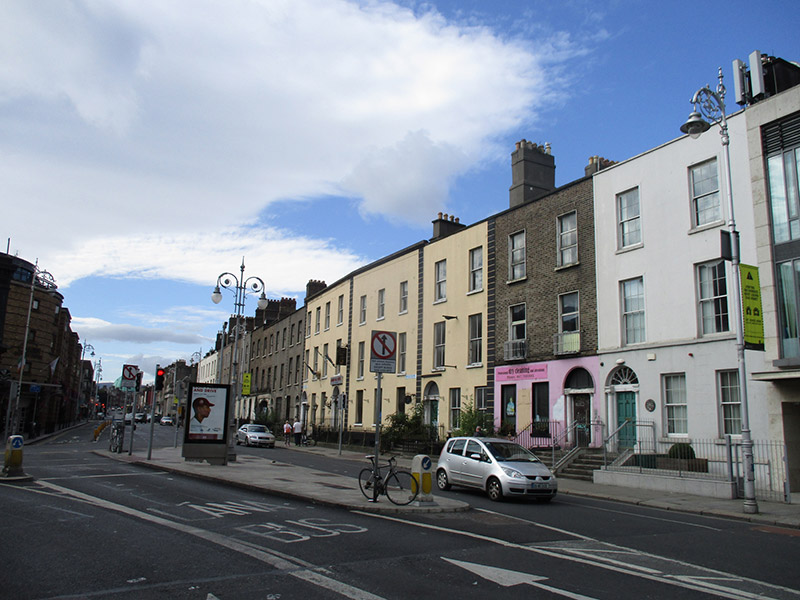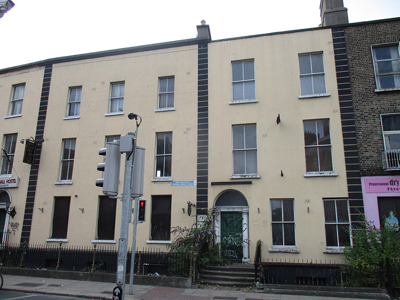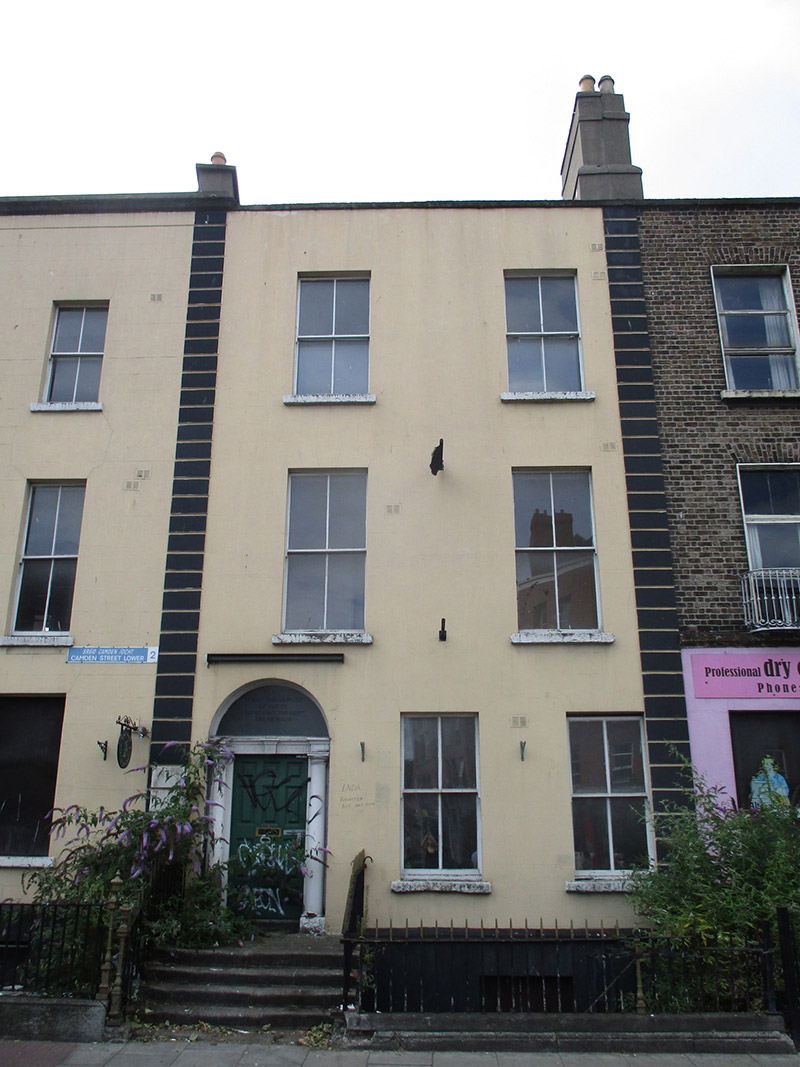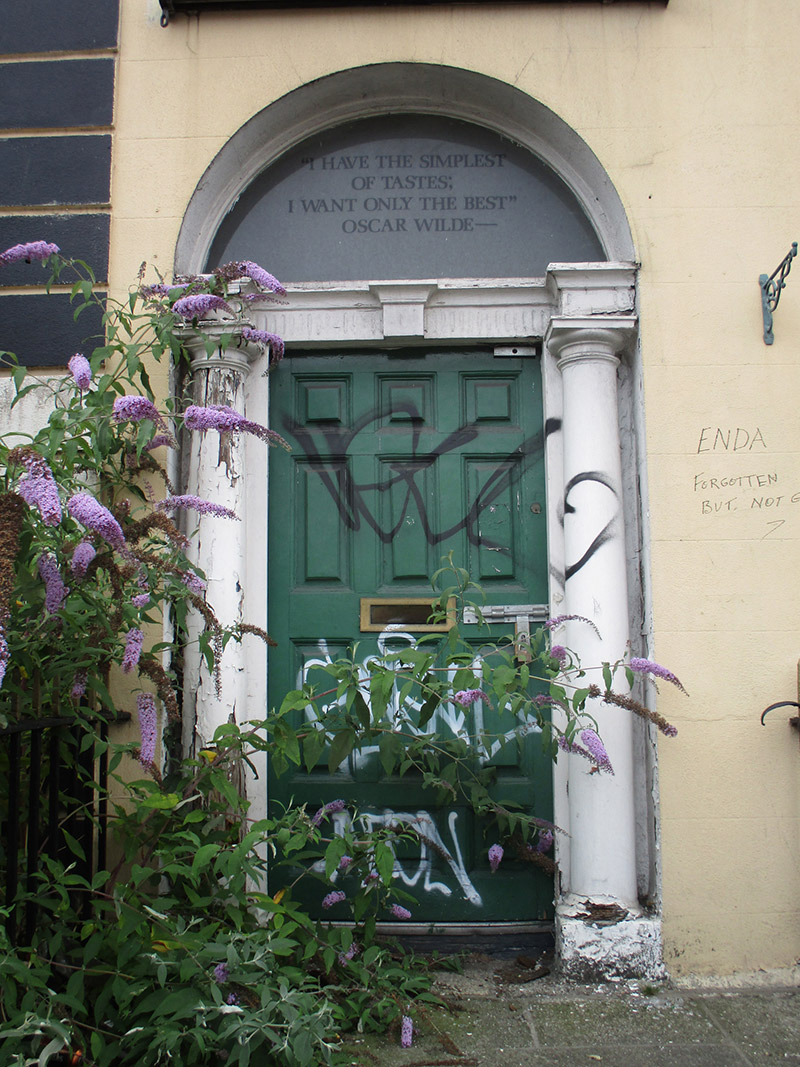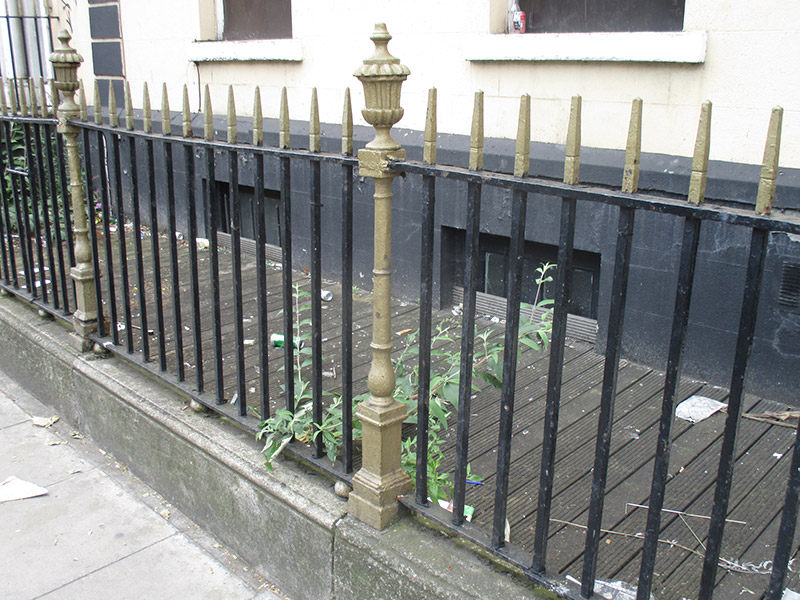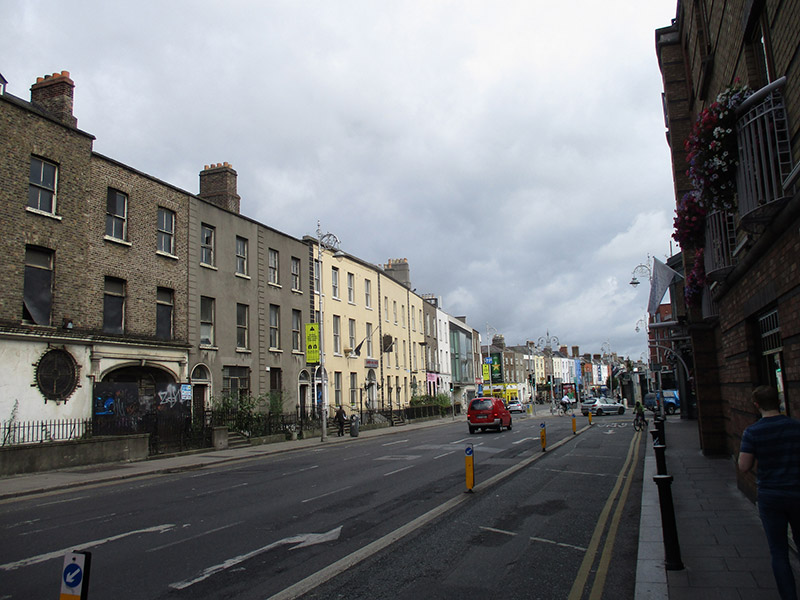Survey Data
Reg No
50110418
Rating
Regional
Categories of Special Interest
Architectural, Artistic
Original Use
House
In Use As
Building misc
Date
1810 - 1830
Coordinates
315611, 232858
Date Recorded
22/07/2017
Date Updated
--/--/--
Description
Attached former pair of two and three-bay three-storey houses over basement, built c. 1820, with return to rear (west) elevation. Now partly in use as hostel. M-profile roof, partially hidden behind rendered parapet having masonry coping. Moulded cornice to house to south. Shared rendered chimneystacks with some clay pots. Lined-and-ruled rendered walls to front (east) elevations, having render quoins and masonry plinth course over lined-and-ruled rendered walls to basement. Rendered walls to rear. Square-headed window openings with masonry sills, one-over-one pane, two-over-two pane timber sliding sash windows, some replacement windows to rear. Round-headed door opening having doorcase comprising Doric columns and entablature. Plain fanlight and timber panelled door. Cut granite steps and platform flanked by replacement railings. Yard to front and basement area enclosed by replacement railings, cast-iron posts with urn finials, on masonry plinth wall.
Appraisal
This pair retains much of its early form and character, enhanced by the well-proportioned openings and Regency style doorcase, popular in the early nineteenth century. It maintains the parapet height and fenestration rhythm of the neighbouring buildings. Its survival has ensured the Late Georgian terrace of which it is part of can be read as a whole. Casey (2005) describes how 'Nos. 50-51 together with Nos. 1-12 Camden Street Upper constitute the most complete and satisfying terrace on the street: large houses of c. 1815, three-storey over basement, all originally of brown brick with tall piano nobile windows, Adamesque doorcases, granite area parapets and old-fashioned railings with urn newels'. According to Casey (2005) 'Camden Street came into being in 1778, named after Charles Pratt, 1st Earl Camden', however much of the street was rebuilt in the nineteenth and twentieth century's.
